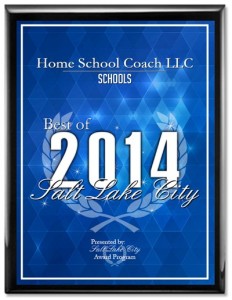I have received a request to define some of the educational options available to families. The list is long and it can certainly be confusing. So I did a bit of research. Here is what I found.
For parents and students, the type of education they choose is critically important. Some parents choose a public school education because they believe it will give their children a more well-rounded experience. Some may choose private educational options for their varied and creative courses of study. Some parents choose religious schools because they want a spiritual component to their child’s education. A growing number of parents are choosing home school because they feel it allows them more control over what and how their children will learn.
Each system has its advantages and drawbacks and parents make their decision based on many varied criteria. For parents and children to make informed choices, they need to understand the options.
What are public schools – The concept of providing free public education to all children was born in Boston in 1635 with the establishment of a public institution that still exists today as the Boston Latin School. By the end of the nineteenth century, public education was available to children across the country. The quality of education has always varied, from region to region. Today, public school curricula are regulated by state and local governments.
What is a magnet School – These are specialized schools within the public school system that attract certain types of students. Many magnet schools have good reputations for teaching students, especially in their specialty areas. Students in magnet schools are surrounded by students who have similar interests to them. Some magnet school programs are whole school magnets, where all students in the school participate in the magnet program. Others are programs within school (PWS) magnets, where only a portion of the students in the school participated in the magnet program.
Options for Vocational Education – Since the early twentieth century, public high schools have had work opportunities in the form of vocational education (also called occupational education). This includes shop and home economics courses, as well as courses geared toward specific occupations such as electrician, automobile mechanic or cosmetologist. Sometimes students have time out of the classroom for on the job training.
What are Parochial and Private Schools – Private schools do not rely on government funding. They are supported by tuition and by grants from charitable organizations and in the case of religious schools, by religious institutions. Private schools include nonsectarian schools and religious schools covering many denominations.
Some parents are willing to pay a tuition cost because they feel it is worth what they perceive as a stronger academic climate and more one-on-one teaching. In the case of religious schools spiritual curricula can be taught that cannot be taught in the public school system.
What are Independent schools – These are private, nonprofit schools governed by elected boards of trustees. This category includes such famous private schools as Andover and Exeter. Independent schools draw their funds from tuition payments, charitable contributions, and endowments rather than from taxes or church funds. Many accept boarding as well as day students.
What are Proprietary schools – These are private schools that are run for profit. This is a relatively new category of school. They do not answer to any board of trustees or elected officials. Because of this they claim to be able to respond quickly to the demands of the market.
Trust me, the list of options is long so I will give you the rest tomorrow. : ) Special education,charter school and more
While you are learning about learning options you may want more information on Standardized testing pros and cons
Possibly Related Posts:
- Shedding My Skin
- Take Control This Summer – Your Stories Affect Your Family Relationships
- Touchpoints For Summer PRESENCE
- Top 10 Educational Apps for Kids
- Family Matters: 4 Pool Games for Having Fun as a Family – Guest Post







{ 0 comments… add one now }